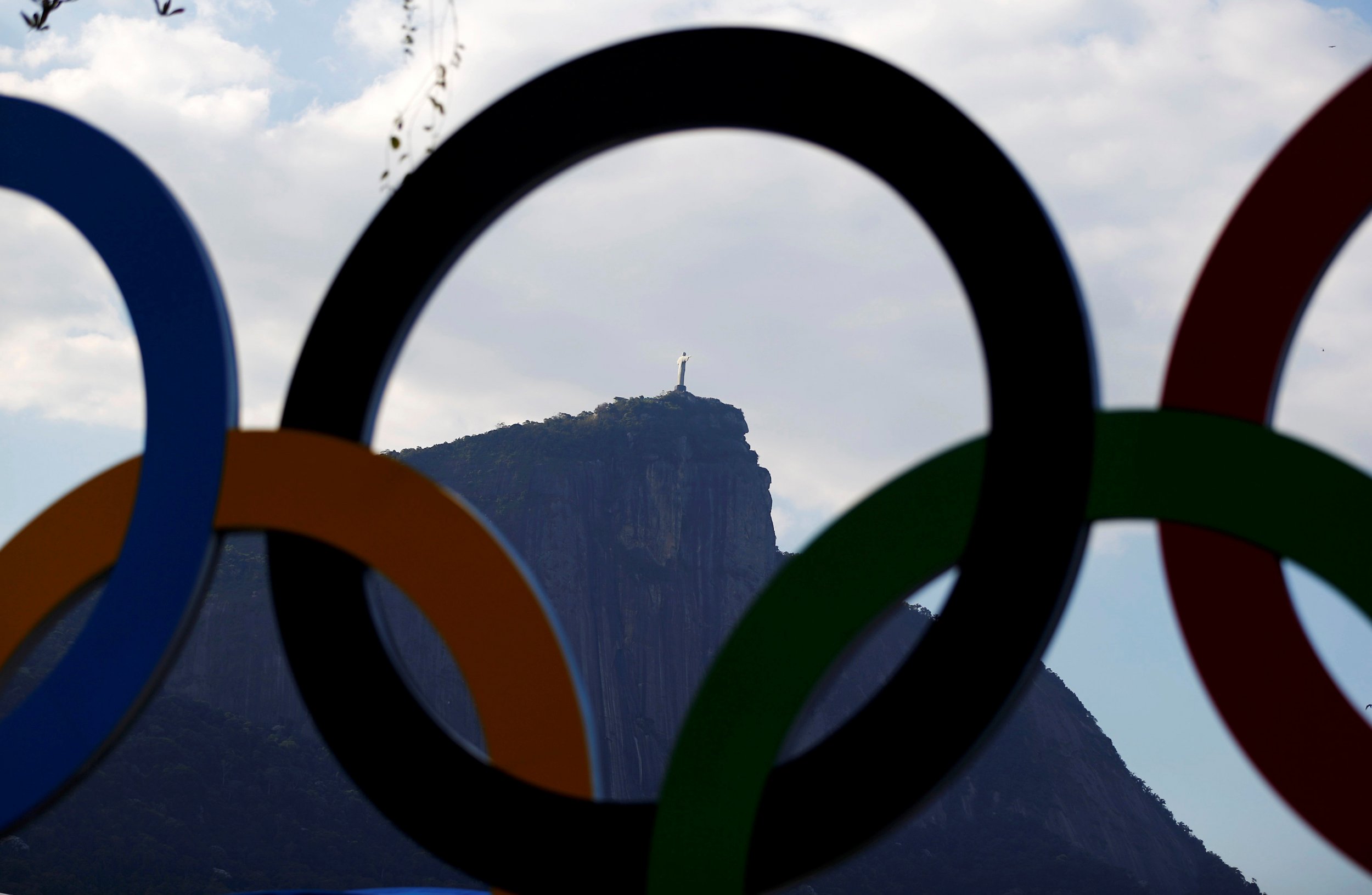
In the lead-up to the 2008 Summer Olympic Games in Beijing, everyone was talking about air pollution. The situation was so bad that some athletes showed up wearing protective face masks. Now, eight years later, as Rio de Janeiro's Olympics approaches, athletes, fans and commentators are focused on a different scourge: toxic, sewage-filled water.
But according to a Reuters report released Tuesday, air pollution in Rio is terrible too. Save for Beijing, the air in Rio is dirtier than that of any Olympic city since the 1980s, when scientists began tracking particulate matter, according to testing by Reuters and researchers from the University of São Paulo. "This is definitely not 'Olympic air,'" said Paulo Saldiva, a University of São Paulo pathologist and member of the World Health Organization (WHO) committee that set tougher global pollution standards in 2006.
According to government data, Rio's air has consistently contained two to three times greater content of PM 10—particulate matter, or ultrafine, inhalable bits of pollution—than the WHO deems safe. And since 2011, Rio's PM 2.5 levels—an even smaller type of particulate matter, considered more dangerous because it can slip deeper into the lungs and enter the bloodstream—have exceeded the WHO's annual limits 83 percent of the time, according to Reuters.
Reuters conducted its tests at several sites, like the Olympic Village, where athletes will live during the games, and Copacabana, where beach volleyball events will be held. They found a peak of 65 micrograms of PM 2.5 per cubic meter at the Olympic stadium, making it the dirtiest site they tested. The WHO's recommended limit for PM 2.5 is 25 micrograms per cubic meter, averaged over a 24-hour period.
Rio officials downplayed the results, saying that air quality ""cannot be judged on PM data alone" and that the city's levels of nitrogen dioxide and sulfur dioxide meet international standards. This is true, but particulate matter is a pollutant of particular interest, affecting the lives of "more people than any other pollutant" and contributing to 3.7 million premature deaths worldwide in 2012, according to the WHO. Air pollution is a general health menace that contributes to everything from asthma and cardiovascular disease to low birth weight, cognitive delays and even heightened suicide risk. Air pollution can also damage immune development in utero, making it harder for babies to fight infection once they are born.
"A lot of attention has been paid to Rio's water pollution, but far more people die because of air pollution than the water," Saldiva told Reuters. "You are not obligated to drink water from Guanabara Bay, but you must breathe Rio's air."
Uncommon Knowledge
Newsweek is committed to challenging conventional wisdom and finding connections in the search for common ground.
Newsweek is committed to challenging conventional wisdom and finding connections in the search for common ground.
About the writer
Zoë is a senior writer at Newsweek. She covers science, the environment, and human health. She has written for a ... Read more
To read how Newsweek uses AI as a newsroom tool, Click here.








